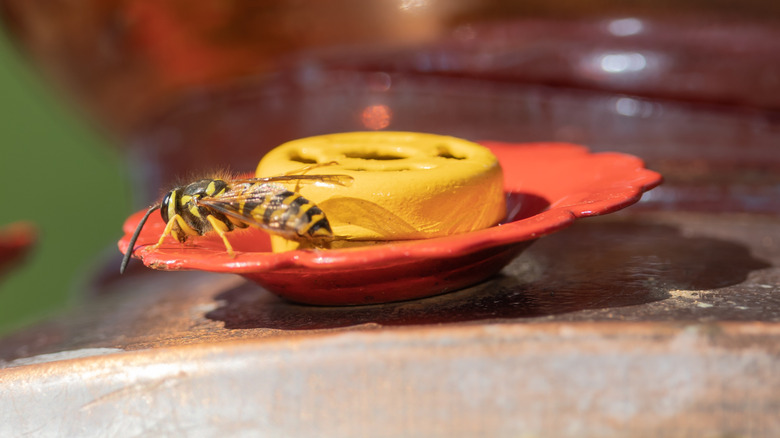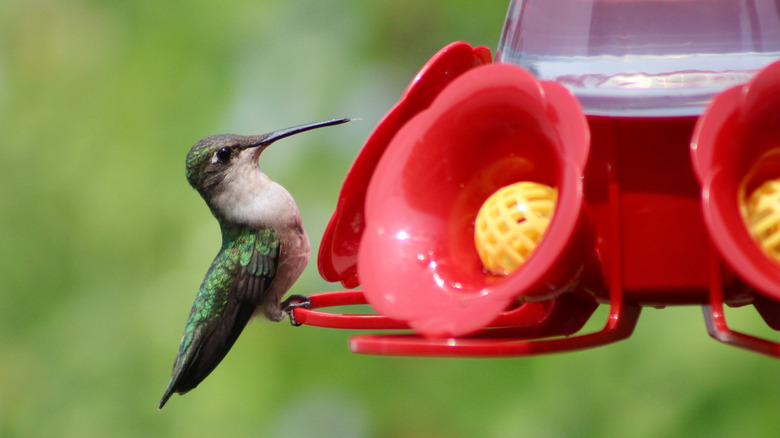The Easiest Way To Keep Flying Pests Away From Your Hummingbird Feeder
Once you've filled your hummingbird feeder with a batch of fresh nectar, it can be delightful to sit on your patio and watch these tiny birds enjoy a visit. Providing feeding stations for the hummingbirds is a wonderful way to help them stay hydrated and energized for busy activities such as fall migration or nesting season. One consequence of offering this delicious treat for the birds is that your feeder may attract a host of uninvited guests, however, such as wasps and hornets. The good news is that it's easy to keep these pests away so that they don't interfere with any hummers who need a drink. Spray a light mist of diluted tea tree oil near the feeding station to keep the wasps away and leave the nectar for your feathery visitors.
The food that hummingbirds love to eat is a simple mixture of sugar and water, and this recipe is irresistible to all kinds of flying insects as well. Wasps and hornets have a sweet tooth and love to find any source of sugar. However, most flying insects don't care for tea tree oil because of its strong aroma. Using this oil as an insect repellent is a natural and humane way to deter these insects from coming too close, which is much better for your backyard than depending on toxic chemical sprays to accomplish this task.
The benefits of tea tree oil
Tea tree oil is from the Melaleuca alternifolia tree, and it's useful not only to repel insects but also as a natural fungicide. Add a few drops of the oil to a spray bottle and fill it with water, then lightly mist the area around the hummingbird feeder. When you do so, you will be discouraging any hornets from coming close, and you'll also be providing your plants with a healthy protection against mildew. To increase the scent of the essential oil, try adding a few drops to a small scrap of cloth and hang it nearby. Reapply every few days, and replace the cloth after it rains in order to keep the aroma strong.
Don't apply undiluted tea tree oil to a feeder where it could accidentally combine with the nectar and contaminate it. It's best to apply it in a diffused and diluted way instead. The oil needs to be extremely diluted as tea tree oil may prove toxic to hummingbirds. Keep your spray bottle handy at the end of the summer and early fall when wasps and hornets are actively looking for nectar as cool weather arrives and the flowers start to fade. This is also the time when hummingbirds will begin their migration south, so protecting their food supply will be critical during these months. By using these tips, you'll be providing your hummingbirds with a safe and healthy environment where they can thrive.

